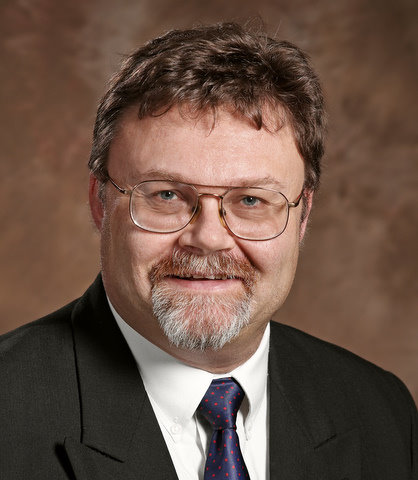 Crown Equipment Corp |
Crown Equipment Corp has built a SR 5000 Series moving-mast reach truck as its 500th new forklift for operation with fuel cells. The number does not include retrofit work.
"An increasing number of our customers are considering fuel cell-powered forklifts as a viable option," says Ernst Baumgartner, Crown's fuel cell project manager. "They are coming to us with questions and asking for help determining if and how this technology can be integrated into their fleets and facilities."
Baumgartner is based at Crown's fuel cell research facility in Huber Heights, Ohio, near Dayton. The 25,000 sqft. (2,250 sqm) facility is dedicated to fuel cell testing and research.
Crown qualified its first forklift in 2008 and, in 2009, formally introduced its fuel cell qualification program. The State of Ohio's department of development and its Third Frontier Commission have provided funding in support of Crown's qualification of forklift trucks for battery-replacement fuel cell projects.
To date, Crown has qualified more than 20 of its electric forklift models to operate with various fuel cells, offering 29 qualified combinations of fuel cell packs and lift trucks.
Crown will deliver the SR 5000 in late 2011 as part of a larger order. Crown built the reach truck in its Roding, Germany facility.
In response to
Forkliftaction.com News questions, Baumgartner says "fleet size is but one of several cost drivers and cannot by itself establish a viable option-decision criterion". Other factors may include "number and duration of shifts; work or duty cycle the trucks are expected to perform; price of electric power versus price of hydrogen; price of fuel cell versus price of batteries; cost of battery charge equipment; space and labour versus the price of the hydrogen refueling infrastructure; value or cost associated by the customer to the carbon footprints for either facility - electric power or hydrogen; value associated by the customer for consistent truck performance over a full shift; total cost associated with battery changes versus hydrogen refueling (and) maintenance costs for batteries versus fuel cells."
A customer must define the cost drivers carefully for a fleet manager to understand the available options and decide on a course of action.
"A typical viable option installation will likely run a three-shift, high-duty-cycle operation, operate 15 trucks or more and convert all existing trucks or commission all new trucks for fuel cell operation for an entire site," he says.
Limitations exist on which of the various fuel cells might work with a particular forklift model.
"It is important that each truck model is qualified with a specific fuel cell to ensure the fuel cell-powered truck meets the same performance, efficiency and safety expectations as the battery-powered version and as initially designed," Baumgartner notes.
Integrating fuel cell-powered forklifts into a fleet requires changes in maintenance and training programs.
For refueling procedures, an operator needs to know hydrogen best practices.
Beyond that aspect, "maintenance and service personnel require training on the fuel cell hardware, safety procedures when dealing with hydrogen gas and proper diagnostics of fuel cell faults," Baumgartner says. "Except for the safety precautions training, the servicing and maintenance tasks required for fuel cells are more similar to lift truck maintenance than battery maintenance."
Baumgartner represented Crown at a September conference on international standards for fuel cells in Geneva, Switzerland. He is a member of working group six of the International Electrotechnical Commission (IEC)'s technical committee 105. The work group has been charged with preparing international standards regarding fuel cell technologies for electric forklift fuel cell applications.
Crown participates in US standards activities for fuel cells as applied to electric lift trucks through UL 583 and UL 2267 through Underwriter Laboratories Inc as well as on the international level through the newly launched IEC 62282-4-100 development.
Crown collaborates with fuel cell manufacturers Plug Power Inc of Latham, New York near Albany; Hess Corp's Nuvera Fuel Cells Inc of Billerica, Massachusetts and San Donato Milanese, Italy near Milan; Oorja Protonics Inc of Fremont, California, near San Francisco; and Hydrogenics Corp of Mississauga, Ontario, Canada, near Toronto. Plug Power and Hydrogenics are publicly traded companies.
"Fuel cells continue to show promise as a viable alternative power source for forklifts within clearly defined applications," Baumgartner notes. "However, they are not right for everyone and certainly not something an organisation should rush into without careful consideration and planning. (Companies must commit) to upfront research and a methodical and measureable introduction into the warehouse."
In addition to New Bremen, Ohio-based Crown, numerous forklift manufacturers offer, or are developing, fuel cell-powered forklifts. Some of those are Toyota Industries Corp of Kariya, Japan through its Toyota and Raymond forklift brands; KION Group GmbH of Wiesbaden, Germany through its Still and Linde forklift brands; Nacco Industries Inc of Cleveland, Ohio through its Yale and Hyster materials handling brands; joint venture Mitsubishi Caterpillar Forklift through business units in Tokyo, Japan; Houston, Texas; and Almere, the Netherlands; and Jungheinrich AG of Hamburg, Germany.